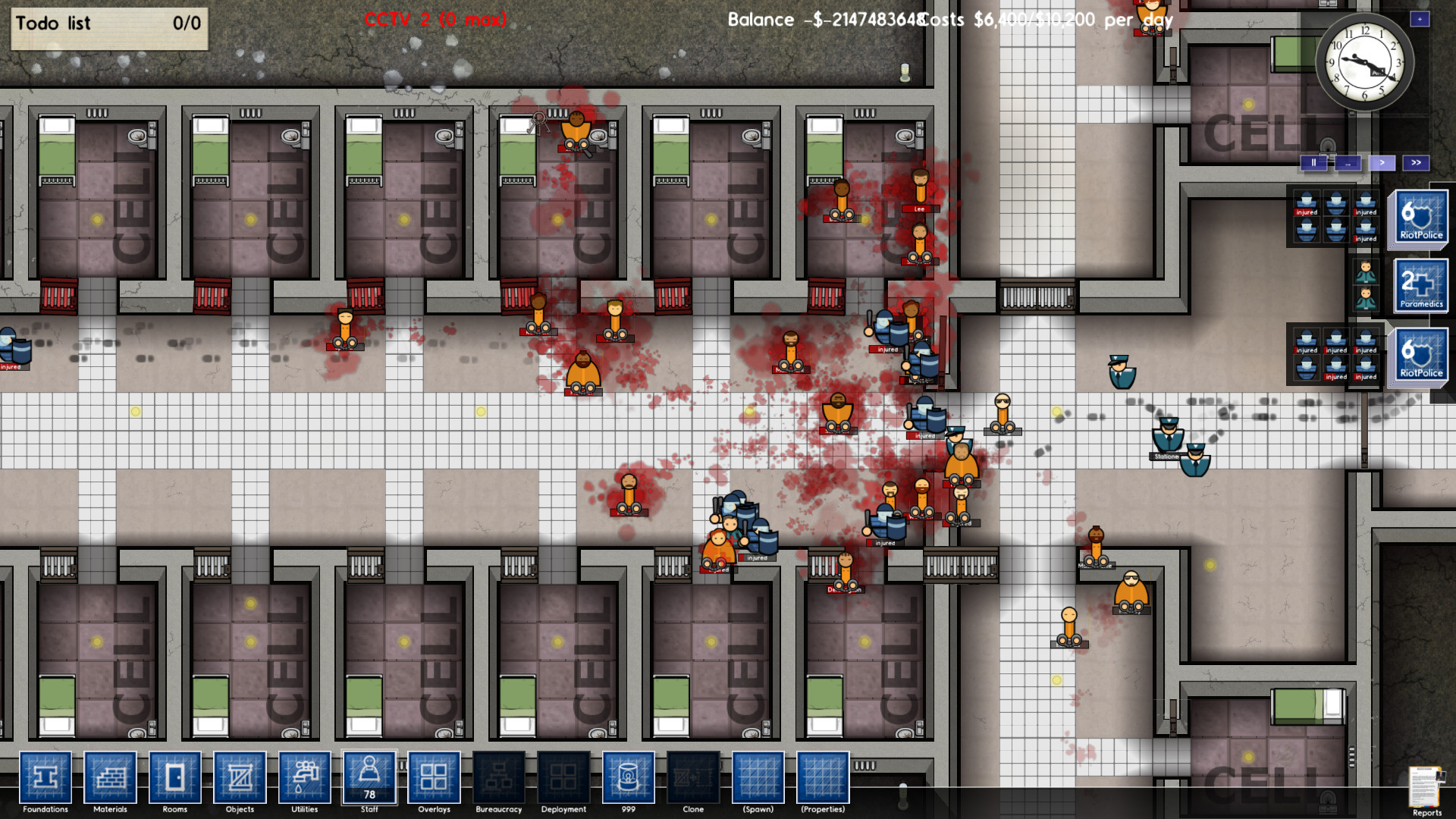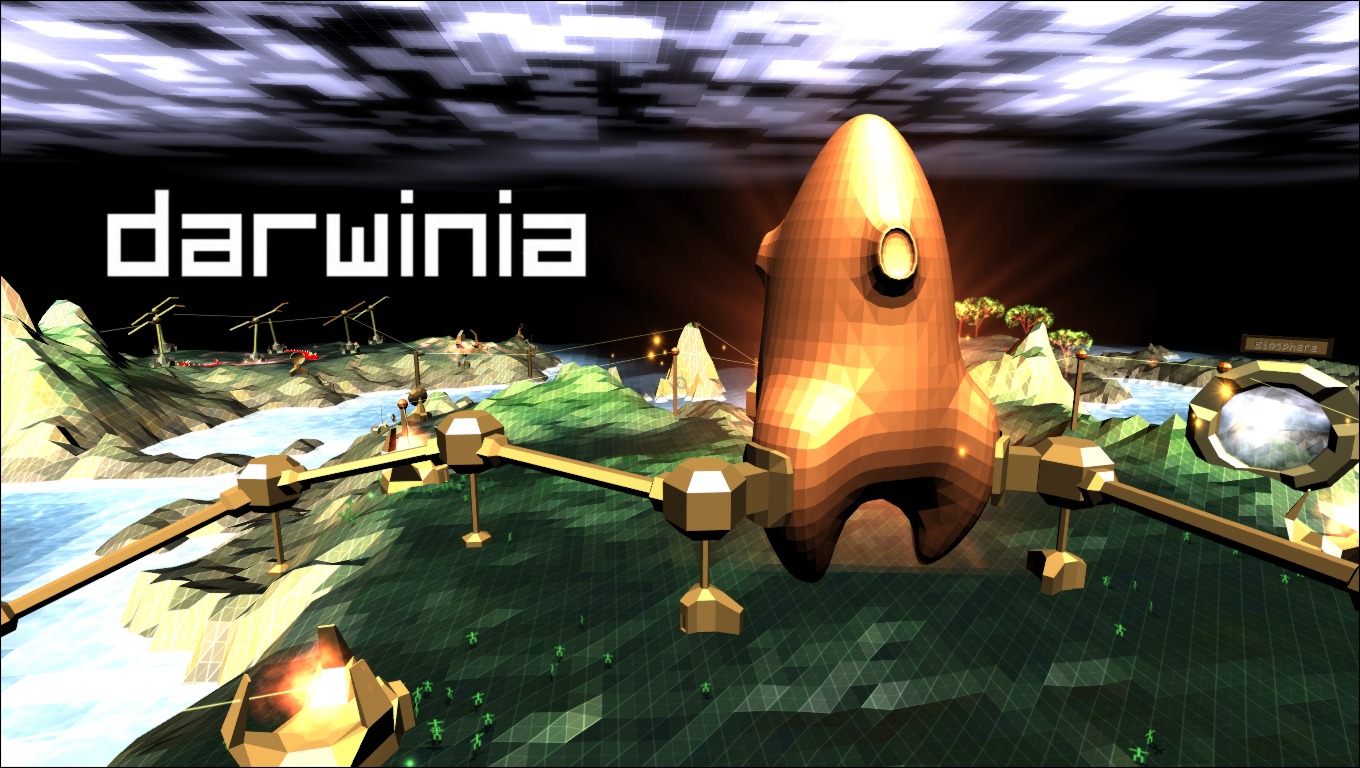Introversion Software Talks About The Linux Market
Introversion software is known to be one of the few software companies to have supported Linux from the early stages, even before Steam for Linux existed officially. You may remember games such as Uplink (a kind of hacker simulator), Darwinia (an abstract RTS), Defcon (a strategy/board game where you have to nuke your adversaries), and of course the more recent Prison Architect. All of those games received Linux versions, and they are even good citizens when it comes to release source of code of their games (source code of Uplink - this source code made it possible to port Uplink to the Open Pandora Linux handheld console, for example).
I went back to contact Mark Morris, Managing Director of Introversion, and asked him a few questions about the Linux market, and their reason to support GNU/Linux gamers in the first place.

Mark Morris (MR from now on): We’ve never seen a large Linux audience. When we started Apple was passing through it’s irrelevant stage so Microsoft really dominated the PC gaming industry. None of us are big Microsoft fans and so we wanted to support the underdog and also that community of players that want to use Linux. It’s not a huge effort to include Linux support and we’ve just felt that we’ve wanted to do it out of respect for that community rather than for a commercial objective.
We all started out as Computer Scientists and that’s where we learnt about why Linux is so superior to Windows. We know that the Internet runs on Linux and without the world would be a very different place. It’s that respect and desire to give all the hard-core the ability to play our games is the real driver.
If you were wondering, in terms of actual sales, how “big” is the Linux market for Introversion, Mark has been kind enough to share their units sales on Steam for all their games available on the platform.
MR: This is our “all history” for all games from steam:
Steam units 1,716,372 Mac units 101,585 Linux units 22,154
You can derive the following: Windows’ share is about 92% of the Steam market, and Mac and Linux are at respectively 5.9% and 1.3%. That’s quite small indeed for a developer that has been Linux friendly for a very long time. Note that they also sell their own games via their own website as well, but it is safe to assume a large majority of their sales are happening via Steam nowadays.

In total, that’s a relatively small market, and indeed it may not make commercial sense.
Apparently most other devs follow a similar line of thinking about Linux support.
MR: Interestingly, I generally find the same opinions amongst other devs. Ie. It’s not really commercially viable, but we like to do it for more personal reasons.
Multiplatform is not an after-thought for Introversion - they have developed all their recent games with portability in mind and nowadays, there is not much more effort needed to include Linux as part of their building process.
MR: Over the years we’ve developed our own set of libraries which abstract the differences of the various operating systems. Some of our libraries make use of SDL to implement the backend, for example the audio backend, keyboard and mouse input on Mac and Linux. Everything is more or less working now.
While Introversion’s team is pretty small, they have someone dedicated to Linux (and Mac) helping them out while developing their games: John Knottenbelt (see interview with him about his Linux work at Introversion in 2008).
MR: Linux is John’s primary development platform and he also uses it for testing. Our main Linux box also hosts Jenkins to coordinate the build process.
There are more and more engine supported on Linux nowadays, and there is a lot of development tools and frameworks available, while it may still not be exactly on par compared to the other platforms yet.
MR: I think the development tools are pretty great, generally on Linux. One thing I would like to see is a set of profiling tools similar to Apple’s Instruments for Mac OS X. Of course there are some programs that provide this functionality already on Linux, but not nearly to the ease of use.
As usual these days, I am interested to hear about what developers think about the Steam Machines initiative, and how they see the future. I was not surprised to see Mark relatively cautious about the initiative:
MR: I understand why they chose Linux as the basis for Steam OS, but this will have a dramatic reduction on the number of games that will work on the steam box. It’s one of these chicken and egg issues - if the games aren’t there, then why will the players buy it, but similarly without a player base why will the big devs take the time to do the ports. I think Steam boxes will be an ultimate success, but I think it will be a slow burn over time rather than a big bang success story.
There is a great offering on Linux of strategy / simulation games in general, while other genres like driving games, sports games, action games or fighting games are clearly missing so far.

This may hint that the typical GNU/Linux gamer is quite different from your average Joe on Windows, and this may also be the reason why Introversion’s games were a good fit with the Linux platform since the beginning.
**MR**: I don’t like making sweeping generalizations about a community of people, but I do think you have to be smart (and dedicated) to use Linux. I've always felt that UI design is low down the list of priorities - even the good work done by Ubuntu to try to improve it have fallen short of (say) OSX. A bad UI almost mandates a higher level of intelligence, so I would agree that our games are quite "cerebral" and I'd also use that word to describe the Linux users.While we lack hard data about this kind of assumption, we do see some differences about how Linux gamers usually interact with developers. I clearly remember not so long ago the whole debate about Witcher 2's poor port quality at launch, and the ensuing dedication from a number of folks in the community to try to help the porters to "fix it" instead of complaining, by providing more data, profiling the performance, providing advice and reporting issues in general.MR: I think the Linux community is much more tolerant to bugs and faults. They are much more prepared to try to fix any issues first before getting into contact with us. It’s tough, because there are loads of distros and different driver issues so the quality isn’t quite as good, so I do feel like the Linux experience isn’t quite as good as the [Windows] PC one (in terms of compatibility etc), but the tolerance of the Linux players makes it worthwhile.
All in all, this is also the community that is driving the adoption of Linux - it's not growing very fast compared to other platforms, yet the growth is undeniable: there are always newcomers and converts joining the ranks. Whether or not Linux will grow beyond 1-2% market share remains to be seen, but it's comforting to see that business is not the only driver for some developers to support the platform. With an Unity editor on the way for Linux, we may actually see some more developers actually working directly on Linux from scratch to make new games.In the meantime, while not having any stock/commercial connection with Introversion, I would recommend without any hesitation any of their games. I have them all myself and while they are demanding and require some learning curve, they are rewarding once you get to master them. Note that Prison Architect is still technically in alpha, but it’s very close nowadays to being a full game in its own right.
Many thanks again to Mark Morris for his availability!
